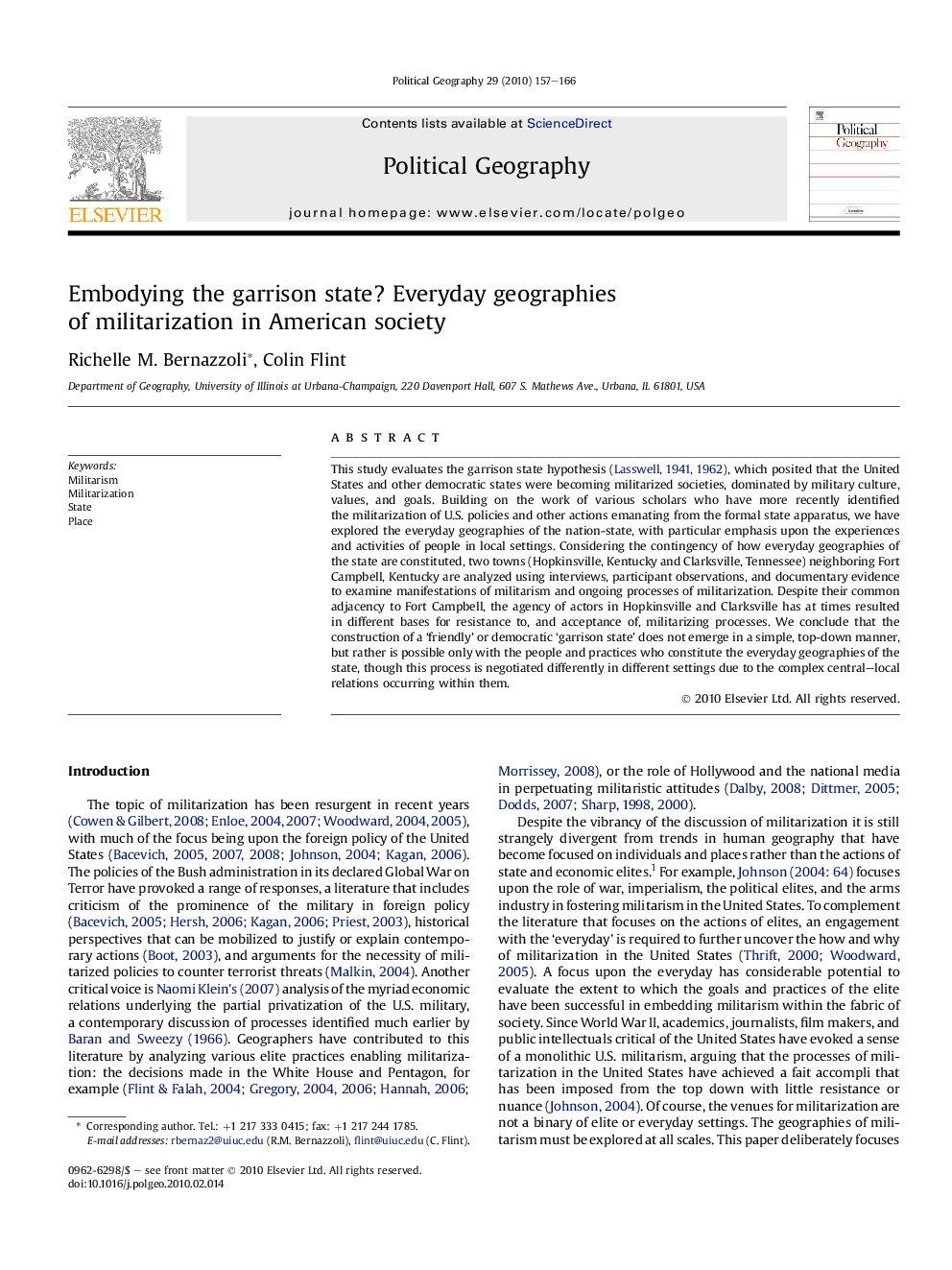| Article ID | Journal | Published Year | Pages | File Type |
|---|---|---|---|---|
| 1062107 | Political Geography | 2010 | 10 Pages |
This study evaluates the garrison state hypothesis (Lasswell, 1941 and Lasswell, 1962), which posited that the United States and other democratic states were becoming militarized societies, dominated by military culture, values, and goals. Building on the work of various scholars who have more recently identified the militarization of U.S. policies and other actions emanating from the formal state apparatus, we have explored the everyday geographies of the nation-state, with particular emphasis upon the experiences and activities of people in local settings. Considering the contingency of how everyday geographies of the state are constituted, two towns (Hopkinsville, Kentucky and Clarksville, Tennessee) neighboring Fort Campbell, Kentucky are analyzed using interviews, participant observations, and documentary evidence to examine manifestations of militarism and ongoing processes of militarization. Despite their common adjacency to Fort Campbell, the agency of actors in Hopkinsville and Clarksville has at times resulted in different bases for resistance to, and acceptance of, militarizing processes. We conclude that the construction of a ‘friendly’ or democratic ‘garrison state’ does not emerge in a simple, top-down manner, but rather is possible only with the people and practices who constitute the everyday geographies of the state, though this process is negotiated differently in different settings due to the complex central–local relations occurring within them.
